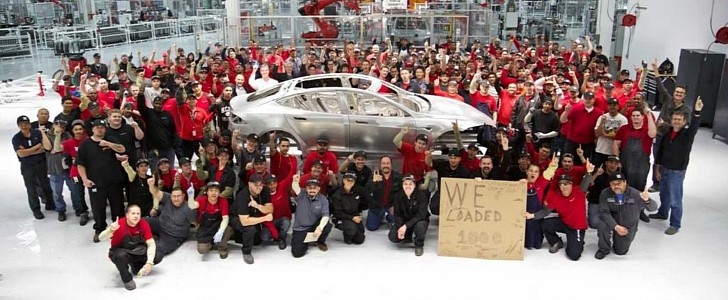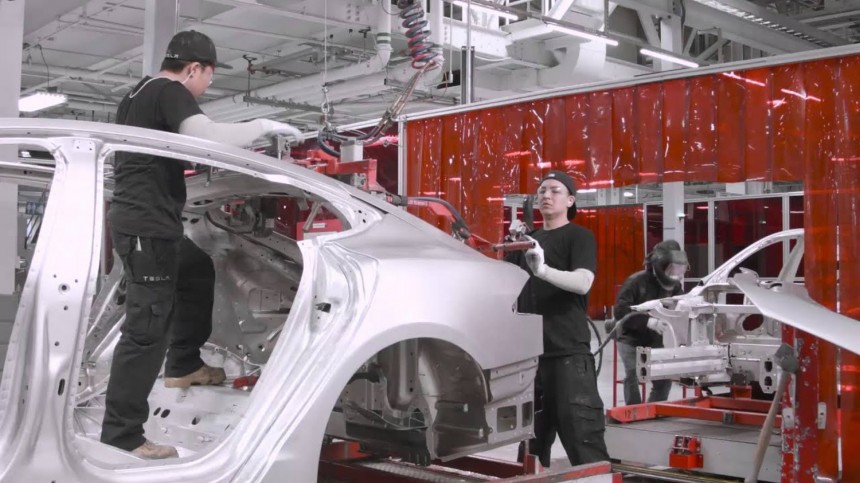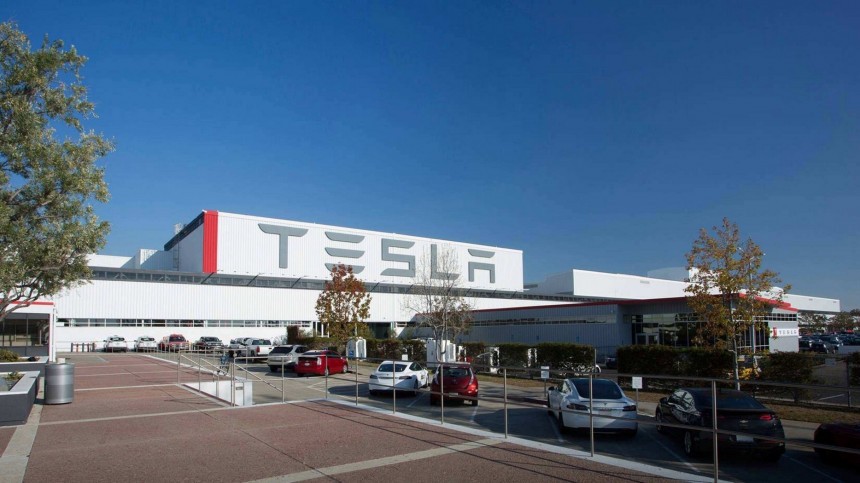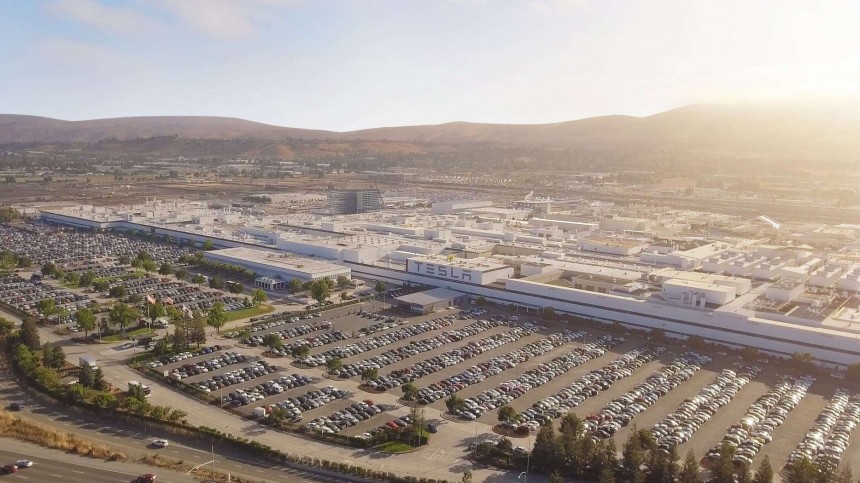After Tesla was convicted for not preventing racism at its Fremont plant, something unusual happened. Although the company does not talk to the press, it published a rare blog post about the lawsuit. In it, Valerie Capers Workman gave Tesla workers her description of the trial. Tesla’s vice president of people said it was an unfair verdict and pointed to apparent contradictions from Owen Diaz, the man who won $137 million. He clarified them in an interview with Good Morning America (GMA).
Workman said that Diaz recommended his son and daughter to work with him at Tesla while he worked there despite being told to “go back to Africa” and being called racist names by other workers in the factory. Tesla’s VP, an Afro-American herself, does not even write the slur: she refers to it as “the n-word.”
GMA says he worked there from June 2015 until July 2016, but other reports say he left in March 2016. Considering GMA spoke to him, we think it may have the most accurate information. According to the interview, the explanation for the apparent contradiction is simple. Diaz told GMA this:
“A lot of people are living paycheck to paycheck. They have to take choose to either take the abuse that these billion-dollar companies are putting out or feed their families.”
The Tesla VP of People also said that Tesla took measures all three times Diaz reported racism in the company, almost a confession of ineptitude. If the contract worker had to complain about racism three times, it implies that Tesla was not able to address the situation effectively in the first one. Workman also mentioned that Diaz had made written complaints to the company that hired him multiple times before that. The contract worker told GMA that Tesla “decided to kill investigations.”
In her report, Workman also wrote that Diaz “didn’t make any complaints about the n-word until after he was not hired full-time by Tesla – and after he hired an attorney.” That implies that the man was seeking just monetary compensation, not to be treated as “equal human beings,” as he told GMA.
Diaz went further and said that his lawsuit was not just about what he went through in Fremont. According to the former contract worker, the suit was not just about his case but about multiple others that keep happening in the Tesla plant. Other racism-related issues faced by Tesla show he is not wrong to point that out.
On August 5, Bloomberg reported that Melvin Berry received $1 million for being called a racial slur by his supervisors at Tesla. Of the $1 million, he got only $266,000: the rest of the money went to legal fees and paying his lawyers.
Being a direct company employee, Berry was not allowed to sue Tesla in courts: he had to file an arbitration case. His case was the only one among the 12 arbitrations from former Tesla employees since 2016 in which the company did not win. As a contract worker, Diaz was free to sue Tesla.
The attorney that represented both Diaz and Berry was Lawrence (Larry) Organ. He also told GMA that this case is about curbing racist conduct in the workplace. Organ expects that Tesla and other companies facing the same accusations will finally start to take them more seriously and avoid them.
The accusations that Tesla does not do enough to avoid racism in its plants do not end with these two cases. The company is also facing a class-action in Alameda County. The plaintiff Marcus Vaughn said that Afro-American employees face a hostile environment, with supervisors calling them the n-word, and swastikas and KKK (Ku Klux Klan) signs regularly spray-painted on bathroom stalls. The class-action represents more than 100 Tesla employees.
Despite all these situations, Tesla asked its shareholders to vote against proposals to have additional reporting on human rights, employee arbitration, and diversity and inclusion efforts. The company informed it would reveal which submissions were approved in up to four working days after the 2021 Annual Meeting of Stockholders.
We’ll follow that closely to check what shareholders have decided. However, and after two major setbacks related to racism, Tesla should probably be more proactive in addressing the situation. Protecting stockholders’ interests and the liabilities that can emerge from such cases is just part of the story and definitely not the most important one. What is really at stake is making sure human rights are dully protected in the company’s facilities. If employees are the most significant assets any enterprise has, Tesla should show it really cares about them.
GMA says he worked there from June 2015 until July 2016, but other reports say he left in March 2016. Considering GMA spoke to him, we think it may have the most accurate information. According to the interview, the explanation for the apparent contradiction is simple. Diaz told GMA this:
“A lot of people are living paycheck to paycheck. They have to take choose to either take the abuse that these billion-dollar companies are putting out or feed their families.”
In her report, Workman also wrote that Diaz “didn’t make any complaints about the n-word until after he was not hired full-time by Tesla – and after he hired an attorney.” That implies that the man was seeking just monetary compensation, not to be treated as “equal human beings,” as he told GMA.
Diaz went further and said that his lawsuit was not just about what he went through in Fremont. According to the former contract worker, the suit was not just about his case but about multiple others that keep happening in the Tesla plant. Other racism-related issues faced by Tesla show he is not wrong to point that out.
On August 5, Bloomberg reported that Melvin Berry received $1 million for being called a racial slur by his supervisors at Tesla. Of the $1 million, he got only $266,000: the rest of the money went to legal fees and paying his lawyers.
The attorney that represented both Diaz and Berry was Lawrence (Larry) Organ. He also told GMA that this case is about curbing racist conduct in the workplace. Organ expects that Tesla and other companies facing the same accusations will finally start to take them more seriously and avoid them.
The accusations that Tesla does not do enough to avoid racism in its plants do not end with these two cases. The company is also facing a class-action in Alameda County. The plaintiff Marcus Vaughn said that Afro-American employees face a hostile environment, with supervisors calling them the n-word, and swastikas and KKK (Ku Klux Klan) signs regularly spray-painted on bathroom stalls. The class-action represents more than 100 Tesla employees.
We’ll follow that closely to check what shareholders have decided. However, and after two major setbacks related to racism, Tesla should probably be more proactive in addressing the situation. Protecting stockholders’ interests and the liabilities that can emerge from such cases is just part of the story and definitely not the most important one. What is really at stake is making sure human rights are dully protected in the company’s facilities. If employees are the most significant assets any enterprise has, Tesla should show it really cares about them.














